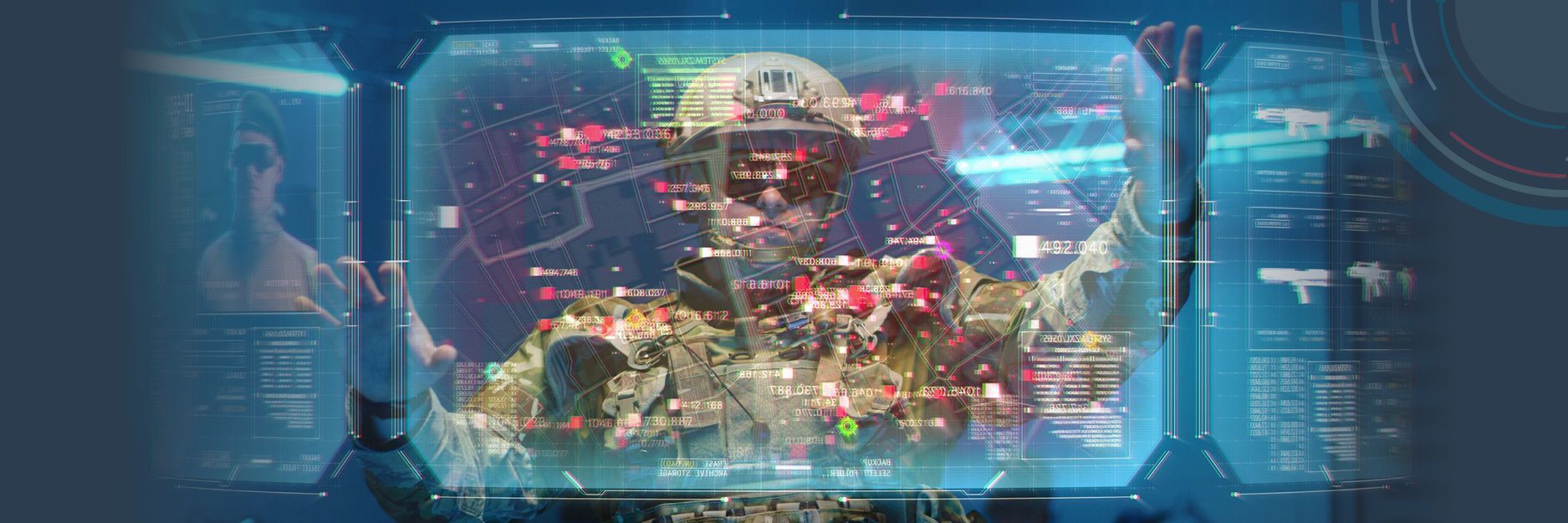DisTec Challenge finalist: AI-powered adaptive learning and scalable flight simulation for trainee pilots
Together Obrizum and BAE Systems have forged an alliance which brings award-winning enterprise AI technology for training and qualifications into the defence training market.
This technology-led training solution will disrupt the Future of Workforce Training in defence by capturing quality proprietary datasets, reducing legacy costs, enhancing training efficiency, increasing scalability, reducing risk, and promoting continuous improvement.
This multi-patented AI-powered adaptive training solution enhances and scales the expertise of human instructors and will be delivered in the following sequence:
Automated build of adaptive Knowledge Spaces
1. The trainee pilots have access to optimised and enhanced pilot training material – hosted in a state-of-the-art digital platform.
2. The platform's AI analyses and segments proprietary training assets in order to automatically curate contextually and factually accurate digital training experiences. These ‘Knowledge Spaces' are the adaptive equivalent of traditional courses and unlock content trajectories that adapt to each learner in real time, helping them build confidence and capability with optimal efficiency.
3. Our use of knowledge spaces allows us to work effectively in secure environments. We carefully control the material that is available to users within their learning journeys and can interrogate the location and relative abundance of key concepts within training content. This means we are more data-driven in our approach to assurance and understand the exact contribution of a given piece of content to learning outcomes. Personalised Learning & AI-Powered Virtual Assistant
4. Each trainee pilot will go on an adaptive learning journey, with the virtual assistant understanding their current capabilities and their knowledge gaps and regularly assessing the trainee throughout their training journey.
5. An example of the training content will include a digital recording of a flight simulation training scenario, enabling assessment of the trainees competence and awareness before they step foot into a simulator.
6. Each user's journey is adapted to their level of knowledge, skill, and confidence - with real time adjustments which enable them to maximise their potential in a highly time-efficient way.
7. Personalisation is further enhanced by a state-of-the-art AI-powered Virtual Assistant which allows trainees or instructors to question the Knowledge Space and rapidly surface contextually relevant and fully referenced answers from within the Knowledge Spaces that they are authorised to operate in, reducing the potential for negative training. Classroom to the Cockpit
8. Following self-paced adaptive learning both trainees and instructors will have a data-driven view of capabilities, competencies, time taken, progress, search analytics, and confidence for all of the key training areas.
9. The trainees will then conduct training in the data capture enabled simulator, to consolidate the classroom-based learning and data feedback into the trainees competency record, showcasing compatibility between the simulator data capture and digital learning platform.
10. Subsequent live training or additional simulator training can then be distilled down to focus on the areas of need, improving training quality, the level of tailoring, and cost-efficiency.


